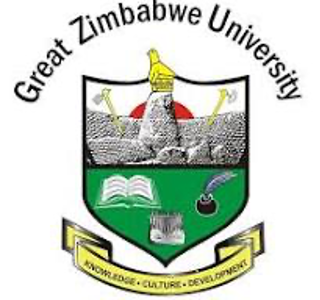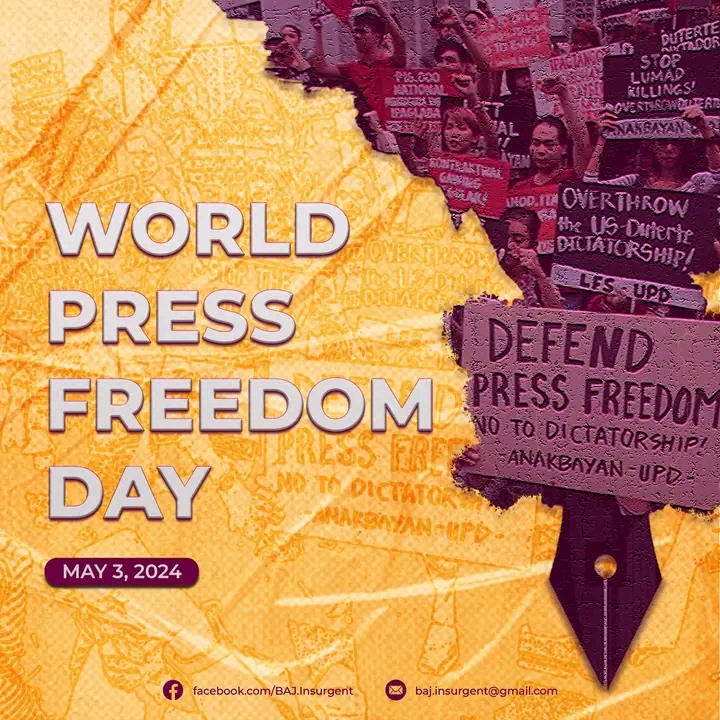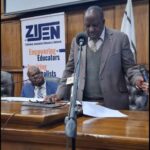By Ephraim Munhuwei and Kudzai Mkono
On the World Press Freedom Day, the Zimbabwe Association of Community Radio Stations (ZACRAS), proudly underscores the vital role of community radio in tackling the global environmental crisis, particularly in relation to climate change. Under the theme “A Press for the Planet: Journalism in the face of the Environmental Crisis,” this year’s World Press Freedom Day, emphasizes the significance of journalism and freedom of expression in the context of our current environmental challenges.
The 3rd of May annually commemorates World Press Freedom Day as a reminder of the importance of freedom of expression and the press in nation-building, transparency, and upholding democracy.
This 2024, World Press Freedom Day envisions journalism as a vital aspect of addressing global-scale crises. Journalists extend awareness and combat disinformation concerning contemporary issues and environmental crises such as biodiversity loss, environmental degradation, pollution, and climate change.
Over the past 30 years, World Press Freedom Day has evolved into a beacon of hope, amplifying stories, evaluating the state of the free press globally, and honoring journalists’ sacrifices for the service of their duties.
Climate change affects us all, but it disproportionately impacts marginalized communities. In Zimbabwe, rural populations and indigenous groups face heightened vulnerability due to their heavy reliance on natural resources and agricultural produce for sustenance. Rising temperatures, erratic rainfall patterns, and extreme weather patterns have been exacerbating food insecurity, water scarcity, and displacement, further exacerbating pre-existing inequalities especially in this year where climate change has been felt across the country with President E.D Mnangagwa declaring this year’s drought a state of disaster.
Minister of information and publicity Dr Jenfan Muswere said the second republic is making progress in ensuring a safe free and competitive environment.
“The second republic of Zimbabwe is making progress in ensuring a safe, free and competitive environment. This has been done through enactment of media friendly and the repealing of laws that affected media operations such as the access to information and the protection of privacy act. This has also led to the opening up of airwaves for both radio and television, thus ensuring media diversity which resonates well with his excellence Dr E.D Mnangagwa’s philosophy of leaving no one and no place behind, said Dr Muswere.
Community radio stations act as early warning systems, providing crucial alerts to communities about impending natural disasters. In light of the Cyclone Idai environmental disaster, Chimanimani FM, Ndau FM and Vemuganga FM are a good example of how community radio can serve the people in times of environmental crises. By broadcasting weather updates, emergency procedures, and evacuation plans, community radio plays as a vital role in saving lives and reducing the impacts of climate-related disasters.
Minister of Information and publicity added that the government amended media laws which are there to guide the pluralism and professionalism of media diversity in the country.
“As we commemorate this important day the government of Zimbabwe is amending the Zimbabwe Media Commission act and the broadcasting Services Act and also the media practitioner’s bill is under consideration. The amendments will professionalise allows the independence of regulation sector and ensure growth in development of the media industry. We also celebrating a major milestone achieved in broadcasting sector which witnessed the professionalization of all live 14 community radio stations which are broadcasting in vernacular languages, said Minister of information and publicity.
In combating these challenges, community radio stations play a pivotal role. They serve as essential conduits for marginalized communities, enabling their voices to be heard and providing platforms for sharing experiences, knowledge, and concerns regarding climate change. Community radio stations are uniquely positioned to engage with local communities, raising awareness about the environmental crisis, promoting sustainable practices, and empowering individuals to take action.
Through localized programming, community radio stations have been able to disseminate accurate and timely information about climate change adaptation and mitigation strategies.
Zimbabwe joins the rest of the world in commemorating the world press freedom day under the theme of freedom of expression in the face of the global environment in bringing the truth to the public.
“This celebration are being held under the theme the press for the planet journalism in the face of the environmental crisis. The theme focuses on the importance of journalism and freedom of expression in the context of the current global environment. It also highlight the important role plaid by the press in accessing and dissemination of information. This guarantee a secure and sustainable feature that respects freedom of expression, media plurality and gender equality”, said Muswere.
The Great Zimbabwe Campus radio manager Doc Last Alfandika said the journalists of today must interfere in bringing in-depth in climate change news by their power of professionalism.
“Yes people are writing stories about climate change but for it to be more trustworthy we want the voices of the experts, we want the voices of people who have deep knowledge about these issues of climate change, and we will not listening to a journalist who would explain how these issues are taking place without balance of diverse voices. We want the technography so that we can have authority or authoritative information and improve our trust”, Doc Alfandika said.
“The media’s coverage of the climate evolved basically because we are seeing a number of changes in the climate which are making news”, he added.
As highlighted by UNESCO, the aim of this year’s theme is to highlight the significant role that the press, journalism, access and dissemination of information play to ensure and secure a sustainable future that respects the rights of individuals and their diversity of voices, as well as gender equality.
Chairperson for MISA Zimbabwe Golden Maunganidze supported the 2024 world press freedom day theme by saying, ‘the media has a crucial role to play in bringing attention to the urgent need for action to address the environmental crisis. Climate change, deforestation, pollution and loss of biodiversity are some of the threats facing our planet. It is through the coverage and investigation of these issues that we can raise awareness and mitigate the challenges of climate change and environmental degradation for a sustainable future’.
Zimbabwe Union of Journalists President George Maponga said world freedom day is a land mark in the journalistic annual calendar, as free press is the barometer of democracy in any dispensation.
“World freedom day commemoration comes as a land mark in the journalistic annual calendar, as free press is the barometer of democracy in any dispensation. Journalist have the crucial role in the world and Zimbabwe included in educating, informing, empowering and give awareness to the marginalized communities not leaving the disabilities, children and women behind”, said Maponga.
Community media facilitate discussions among community members, experts, and policymakers, fostering dialogue and collaboration to develop contextually relevant and inclusive solutions. Therefore all Rural District Councils in Zimbabwe have to work closely with these community radio stations as they are agents of development and in this context conduits for creating climate change resilient communities.
Through the CFLI project, ZACRAS took significant strides in empowering women journalists, enabling them to share their own stories and experiences. Recognizing the importance of amplifying the voices of women in the media, ZACRAS provided training and support to women journalists, equipping them with the necessary skills and resources to write compelling narratives about their lives and the challenges they face in the context of climate change.
By empowering women journalists to tell their own stories, ZACRAS aimed to foster a more diverse and inclusive media landscape, where the perspectives and realities of women are accurately represented. These efforts contribute to a more comprehensive understanding of the unique impacts of climate change on women and girls, and highlight the resilience, strength, and agency of women in the face of these challenges. Through these initiatives, ZACRAS actively works towards gender equality and empowerment within the community media sector, while shedding light on the critical role of women in addressing climate change.
Despite the critical mandates and invaluable contributions of community radio stations in addressing climate change and supporting marginalized communities, it is unfortunate to highlight the challenges they face in fulfilling these tasks. Insufficient financial resources severely hamper the ability of community radio stations to operate effectively, hindering their capacity to disseminate accurate information, engage communities, and provide reliable data.
Volunteer brain drain poses a significant challenge, as trained community journalists and other individuals often seek better opportunities elsewhere, leading to a shortage of qualified personnel in community radios. Moreover, the lack of resources and funding further exacerbates the difficulties faced by community radio stations, making it challenging to acquire necessary equipment, maintain infrastructure, and sustain day-to-day operations. As ZACRAS we appeal to all community radio stakeholders to work with us so that we have a coordinated approach in addressing most challenges faced by community radio stations in Zimbabwe.








